
Basgo Fort and Monastery
Explore Basgo Fort and Monastery, a historic gem on the Silk Route, boasting ancient murals, impressive Buddha statues, and dramatic valley views.
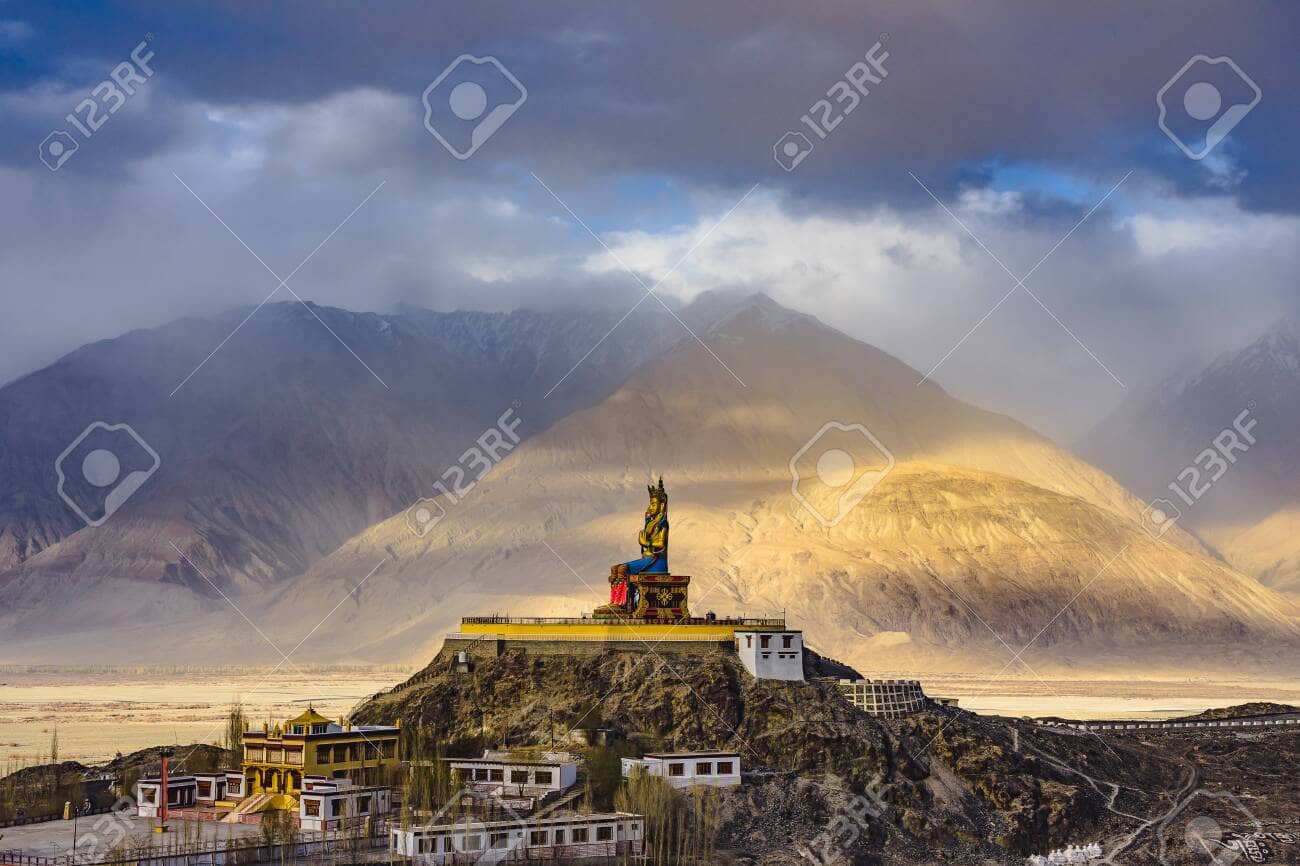
Highlights
Must-see attractions
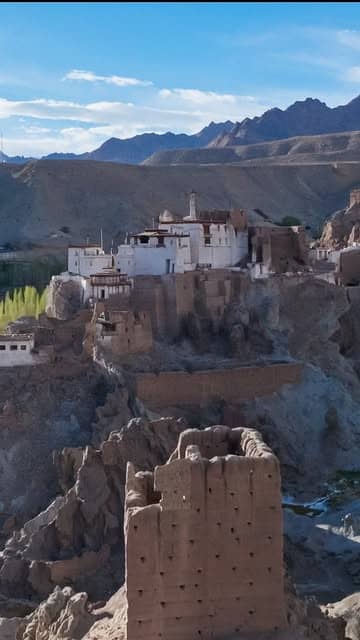
Social
From TikTok & Reddit
Best Time
Beat the midday sun

Basgo Fort and Monastery
Best Time
Beat the midday sun

Highlights
Must-see attractions
Explore Basgo Fort and Monastery, a historic gem on the Silk Route, boasting ancient murals, impressive Buddha statues, and dramatic valley views.
"A spiritual oasis amidst rugged mountains, Basgo offers a journey into Ladakh's glorious history and Buddhist culture."
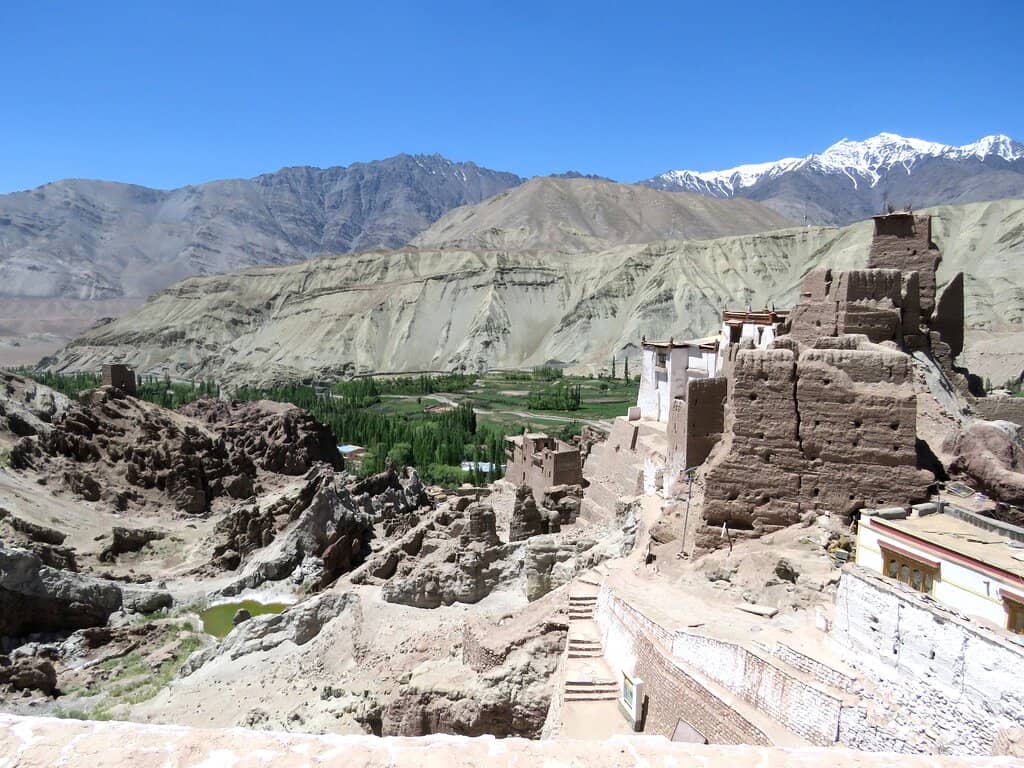
🚗 Easy Highway Access
Located directly on the Leh-Srinagar highway, making it a convenient stop.
👟 Wear Comfortable Shoes
Essential for climbing to the monastery and exploring the fort ruins.
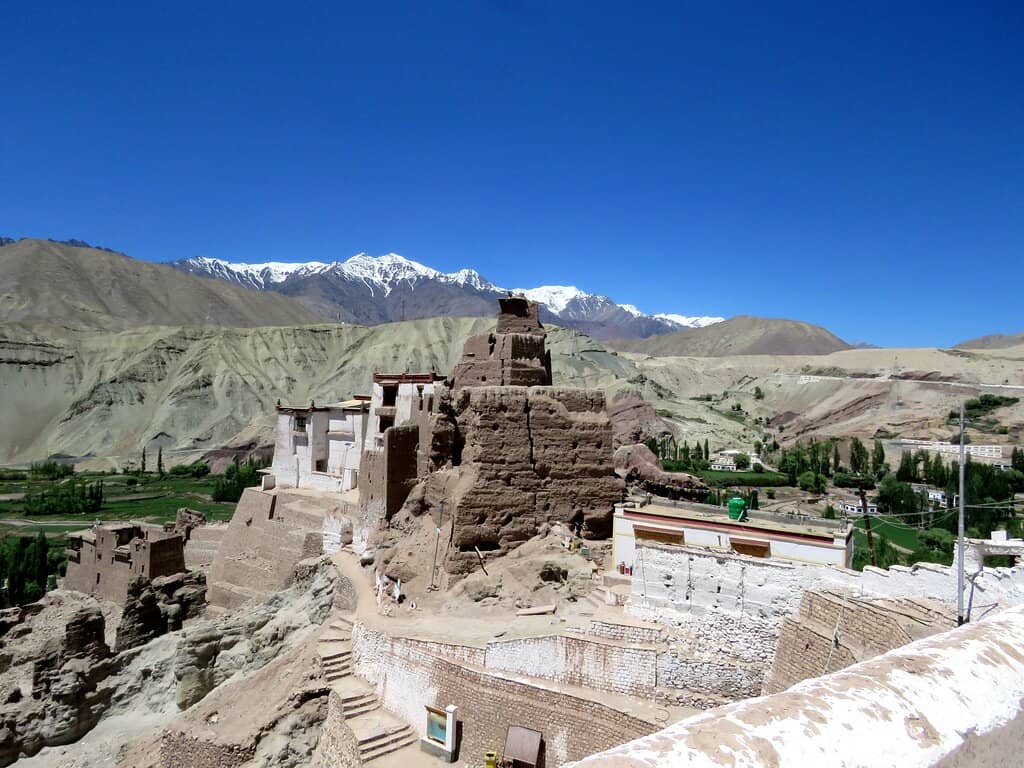
Highlights
Discover the most iconic attractions and experiences
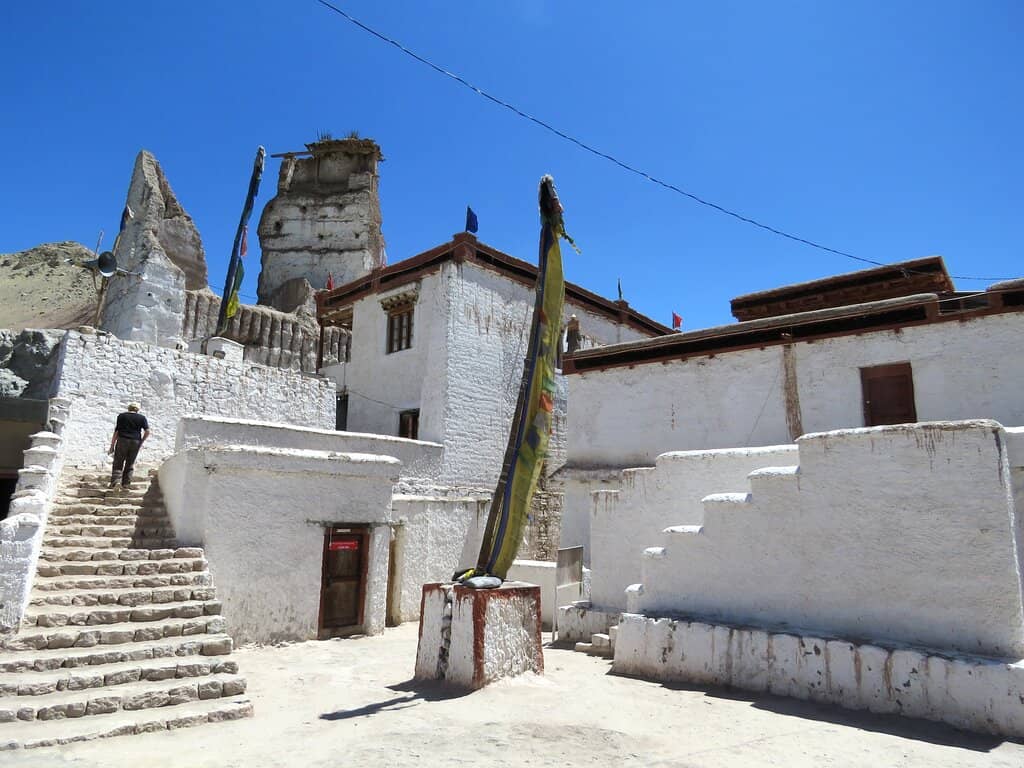
Maitreya Buddha Temple
Basgo Monastery
Marvel at the grand Maitreya Buddha temple, featuring a stunning clay image of the future Buddha.

Ancient Murals and Frescoes
Basgo Monastery Temples
Discover the original 16th-century murals and faded frescoes, showcasing medieval Ladakhi artistry.
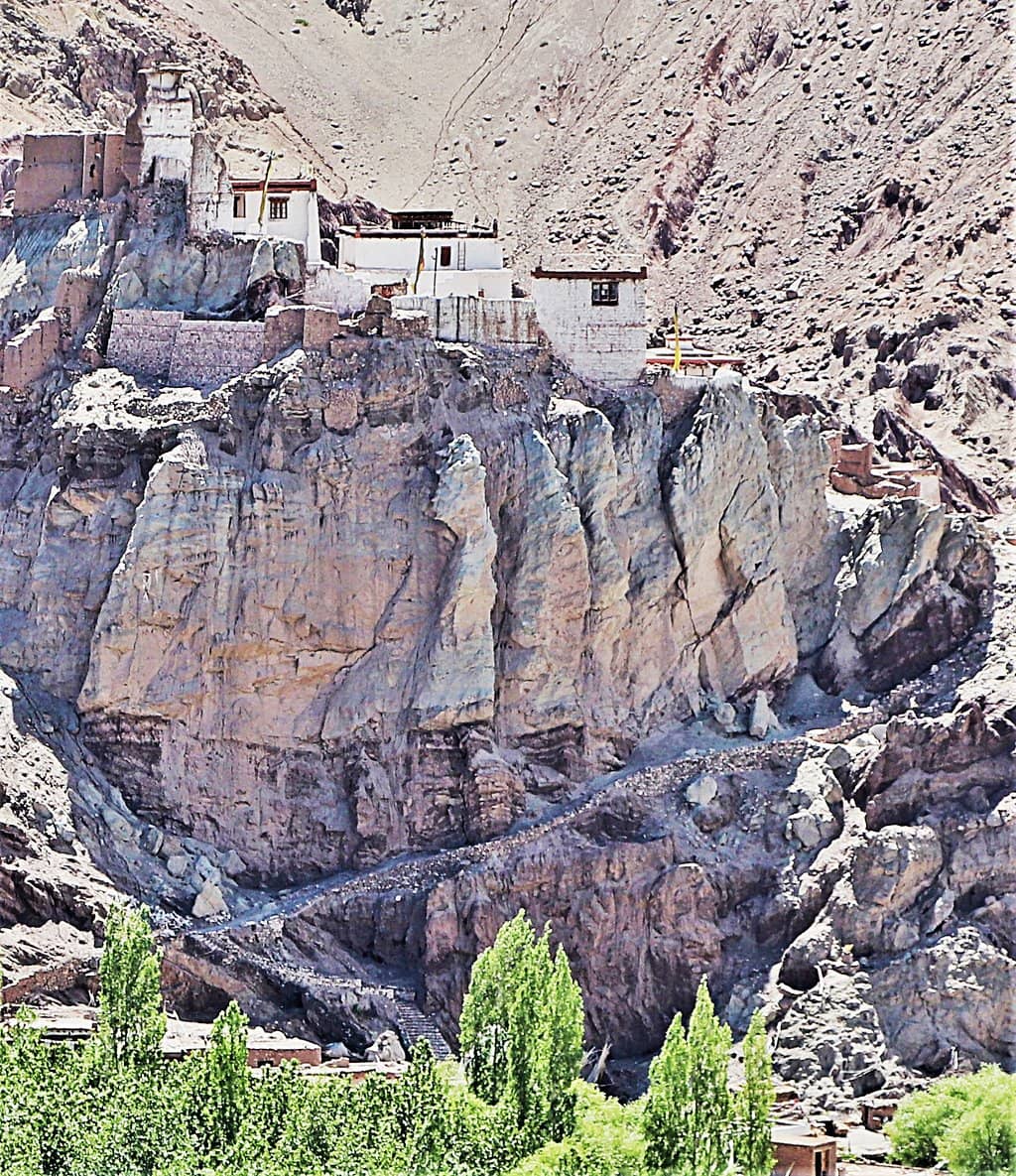
Ruins of Basgo Fort
Basgo Hilltop
Explore the dramatic mud-brick fortress ruins offering panoramic views of the Indus valley.
Plans like a pro.
Thinks like you
Planning Your Visit
Timing Your Visit to Basgo
What to Bring for Your Basgo Trip
Best Times
Insider Tips
from TikTok, Instagram & Reddit
🚗 Easy Highway Access
Located directly on the Leh-Srinagar highway, making it a convenient stop.
👟 Wear Comfortable Shoes
Essential for climbing to the monastery and exploring the fort ruins.
💧 Carry Water & Snacks
Basic facilities mean you should pack your own refreshments.
📸 Stunning Valley Views
Breathtaking panoramic vistas of the Indus valley await.
Tips
from all over the internet
🚗 Easy Highway Access
Located directly on the Leh-Srinagar highway, making it a convenient stop.
👟 Wear Comfortable Shoes
Essential for climbing to the monastery and exploring the fort ruins.
💧 Carry Water & Snacks
Basic facilities mean you should pack your own refreshments.
📸 Stunning Valley Views
Breathtaking panoramic vistas of the Indus valley await.
⏳ Allow Ample Time
Plan for a few hours to fully explore the historical site.
What Travellers Say
Reviews Summary
Basgo Fort and Monastery is praised for its historical significance, stunning architecture, and breathtaking views, offering a serene and less crowded experience compared to other Ladakhi monasteries. Visitors appreciate the ancient murals and the dramatic landscape, though some note the basic facilities and the need for comfortable footwear for the climb.
"Basgo Monastery and Fort, located about 40 km from Leh on the Leh–Srinagar highway, is one of the hidden gems of Ladakh that beautifully blends history, spirituality, and architecture. Perched on a hilltop overlooking the Indus valley, Basgo is not just a monastery but also a fortress that once served as the capital of Lower Ladakh in the 15th–17th centuries.
The site is particularly famous for its ancient murals, copper-gilt Buddha statues, and the grand Maitreya Buddha temple. The monastery belongs to the Gelugpa sect of Tibetan Buddhism and is known for its spiritual significance. The walls, adorned with faded but still mesmerizing frescoes and paintings, reflect the rich artistry of medieval Ladakh. The atmosphere inside the monastery is calm, peaceful, and filled with the scent of butter lamps.
The fort ruins surrounding the monastery add a dramatic charm. Though much of it now lies in decay, the crumbling mud-brick structures set against the stark barren mountains and blue sky create an awe-inspiring sight. Walking through the remains, one can almost feel the stories of battles, royal heritage, and spiritual devotion that shaped Ladakh’s past.
From the monastery, the panoramic views of the Indus valley are breathtaking — lush green patches of cultivation contrasting with the desert-like mountains and snow peaks in the distance. Photographers and history lovers will find this place especially rewarding.
Getting here is relatively easy as it lies right on the highway, but the monastery itself requires a short climb uphill. Facilities are basic, with no big shops or eateries nearby, so carrying water and snacks is recommended.
Overall, Basgo Monastery & Fort is not just a tourist spot but a journey into Ladakh’s glorious history and Buddhist culture. It’s quieter and less crowded compared to Hemis or Thiksey monasteries, making it a perfect stop for those who love heritage, solitude, and raw beauty."
Sudhanshu Kumar
"Basgo Monastery is 40 km from Leh on Srinagar highway. Once we reached this village, we saw a lot of mani walls with chortens on the road itself. The monastery was built by Namgyal rulers in 1680 and is situated on top of a hill towering ruins of ancient city. It was a political & cultural centre and has distinction of being the only place where original 16th century murals still exist. The monastery has 3 temples -CHAMBA MAITREYA – with image of Maitreya in clay, SERZANG TEMPLE with copper-built image of Maitreya and CHAM CHUNG TEMPLE which was initially built as mosque but later converted to Maitreya.This monastery has been recognized as world’s 100 most endangered heritage sites in 2000-2001 by World Monument Foundation."
Vikas Singh
"Ancient monastery that keeps one of the most beautiful Budha Maitreya"
Hernán Victor Venturino
What People Like
What People Dislike
Frequently Asked Questions
🚇 🗺️ Getting There
Basgo Fort and Monastery is conveniently located about 40 km from Leh on the Leh-Srinagar National Highway. You can hire a taxi or take a local bus heading towards Srinagar. It's a straightforward drive, making it an ideal day trip.
Yes, Basgo is often visited as a stopover when traveling between Leh and Alchi Monastery, another significant site in Ladakh.
Hiring a private taxi from Leh offers the most flexibility and comfort. Local buses are a budget-friendly option but may have less frequent schedules.
There is usually space available for vehicles near the base of the hill where the monastery is located.
While buses run on the highway, they might not stop directly at Basgo. It's advisable to confirm with the bus conductor or opt for a taxi for a direct drop-off.
🎫 🎫 Tickets & Entry
There is typically an entry fee for visiting Basgo Monastery and its complex. It's recommended to carry some cash for ticket purchases.
The monastery is generally open during daylight hours. It's best to visit during the day to explore the ruins and temples fully.
While not explicitly stated, it's always good practice to be respectful of local customs. Photography inside the main temples might be restricted or incur a small fee.
The entry fee usually covers access to both the monastery and the surrounding fort ruins.
Information on discounts is not widely available. It's advisable to inquire at the ticket counter upon arrival.
🎫 🧭 Onsite Experience
Basgo features the ruins of a historic fort, royal palace quarters, and three main temples, including the Maitreya Buddha temple with its impressive clay statue. You'll also find ancient murals and stunning views of the Indus valley.
Allocate at least 2-3 hours to explore the monastery, climb to the fort ruins, and soak in the views.
The climb is moderate and involves walking on uneven paths and stairs. Comfortable footwear is highly recommended.
Local guides may be available for hire at the site, offering deeper insights into the history and significance of Basgo.
Basgo was once the capital of Lower Ladakh in the 15th-17th centuries and a crucial stop on the Silk Route. It's known for its well-preserved murals and as a former political and cultural center.
🍽️ 🍽️ Food & Dining
Facilities are basic, and there are no significant eateries or shops directly at the monastery. It's best to carry your own food and water.
You'll find more dining options in Leh or in villages further along the highway towards Alchi. Plan your meals accordingly.
You can enjoy a picnic with the stunning views, but remember to clean up after yourself and dispose of trash responsibly.
It's unlikely to find specific local snacks for sale at Basgo itself. Consider trying local delicacies in Leh.
It's highly recommended to carry your own bottled water. There might be very limited options for purchasing water.
📸 📸 Photography
The ruins of the fort offer dramatic shots against the barren landscape. The panoramic views of the Indus valley from the hilltop are also spectacular.
Photography inside the main temples, especially of the Buddha statues and murals, may be restricted or require a separate fee. Always check for signage or ask permission.
Early morning or late afternoon offers beautiful golden hour light, enhancing the colors of the sandstone cliffs and the valley.
Capture the contrast between the ancient mud-brick structures and the vast, rugged Ladakhi landscape. The approach to the monastery also provides great framing opportunities.
A wide-angle lens is great for landscapes, while a telephoto lens can be useful for capturing details of the fort and distant peaks. A sturdy tripod can help with low-light conditions.
For Different Travelers
Tailored advice for your travel style
👨👩👧 Families with Kids
While there are no specific playgrounds or child-centric facilities, the open spaces and the unique architecture can keep younger visitors entertained. It's advisable to carry plenty of snacks and water, as dining options are limited. Ensure children wear comfortable shoes for navigating the uneven terrain. The historical context can be simplified into engaging stories about kings, queens, and ancient battles to make the visit more interactive.
🚶♀️ Solo Travelers & Backpackers
As facilities are basic, solo travelers should be prepared with their own provisions. The moderate climb is well worth the effort for the breathtaking views and the chance to explore ancient ruins at their own pace. It's a great spot to connect with the history and spirituality of Ladakh without the hustle of more popular tourist sites.
📸 Photographers & History Buffs
History buffs will be fascinated by Basgo's past as a former capital and a Silk Route stopover. The site's historical significance, combined with its architectural evolution, provides a rich tapestry to explore. The relatively fewer crowds compared to other monasteries allow for a more immersive and unhurried experience, perfect for detailed observation and capturing the essence of Ladakh's heritage.
Deep Dives
In-depth insights and expert knowledge
The Rich History of Basgo
The monastery, belonging to the Gelugpa sect of Tibetan Buddhism, is renowned for its spiritual importance and its artistic treasures. It houses some of the last remaining original 16th-century murals in Ladakh, depicting Buddhist deities and narratives with remarkable detail. The presence of the grand Maitreya Buddha temple, featuring a large clay statue of the future Buddha, underscores its religious significance. Sadly, Basgo was also recognized as one of the world's 100 most endangered heritage sites in 2000-2001, highlighting the ongoing efforts for its preservation.
Today, exploring Basgo offers a tangible connection to this rich past. Walking through the crumbling fort ruins, one can imagine the bustling life of a former capital and the spiritual devotion that permeated the monastery. The site is a testament to the resilience of Ladakhi culture and architecture, offering a glimpse into a bygone era amidst the dramatic natural beauty of the region.
Architectural Marvels and Artistic Heritage
Within the monastery complex, the temples are the main draw for their artistic merit. The Maitreya Buddha Temple is particularly noteworthy for its imposing clay statue of the future Buddha, a significant icon in Tibetan Buddhism. Equally captivating are the ancient murals and frescoes that adorn the temple walls. These vibrant, though often faded, paintings are rare survivors from the 16th century and provide invaluable insights into the artistic styles and religious iconography of medieval Ladakh.
The Serzang Temple, housing a copper-built image of Maitreya, and the Cham Chung Temple, which was initially built as a mosque before being converted, further add to the historical and architectural diversity of Basgo. The site's recognition by the World Monument Foundation underscores the urgent need for conservation to protect these invaluable cultural assets for future generations.
Photography Opportunities at Basgo
When exploring the monastery, focus on the intricate details of the ancient murals and frescoes within the temples. While photography inside might have restrictions, the textures and colors, even in their faded state, tell compelling stories. The Maitreya Buddha statue itself is a powerful subject, conveying a sense of serenity and spiritual presence. Don't miss capturing the unique mani walls and chortens often found near the entrance, adding a spiritual element to the visual narrative.
For the best shots, consider using a wide-angle lens to encompass the grand scale of the fort and valley, and a telephoto lens to zoom in on architectural details or distant snow-capped peaks. The approach to the monastery, with its winding paths and scattered ruins, also offers excellent framing opportunities. Remember to be respectful of the sacred nature of the site when taking photographs.

Social
from TikTok, Instagram & Reddit